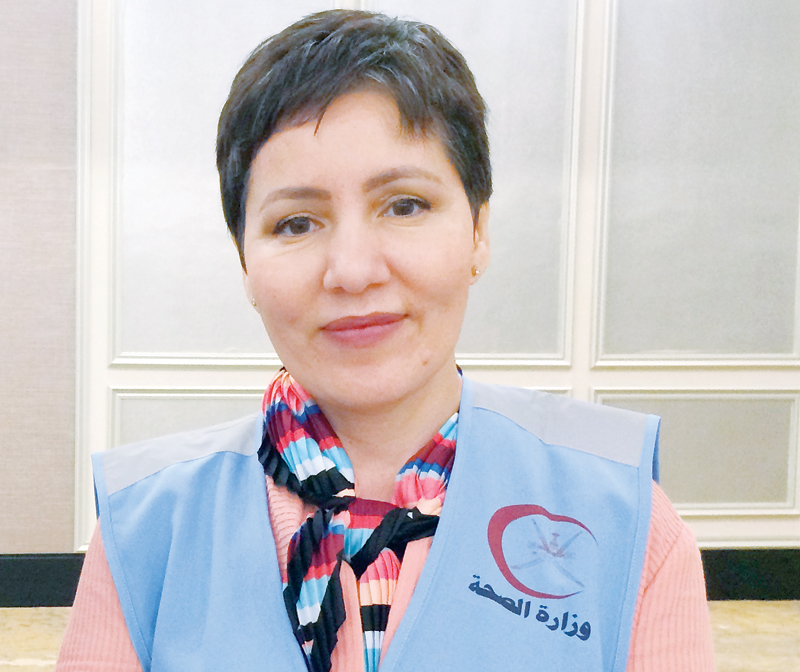

Health care preparedness in all the segments in Oman is one of the best in the region in terms of capacity structure and service delivery.
This was stated by Dr Akjemal Megtymova, WHO (World Health Organisation) Representative in Oman. She cited WHO’s Joint Assessment done in 2017 and her own experience to substantiate Oman’s very high capacity health care with competent staff, readiness and a proper system in place.
In an interview with the Observer during the ongoing comprehensive national vector survey which is the first survey of its kind in the Sultanate, Dr Megtymova dewlt upon the fact that in this fast moving world, the diseases also have the potential to move fast.
“Here lies the need to be prepared with readiness and quickness. I am pleased to be part of the ‘vector surveillance system’ which is a milestone to prevent and control the vector borne diseases,” she said.
Dr Megtymova said the Ministry of Health and the Omani Government deserved accolades for the imitative, which has wide ranging implications in controlling vector borne as well as communicable diseases.
Asked about the seriousness of the vector borne diseases, Dr Megtymova said, “As far as the vectors exist, they are factor for diseases. It is as simple as the fact that if mosquitoes are present, they are the carriers and the risk factor.”
“Oman has achieved tremendous reduction and has very high prevention rate. They are vigilant and open to using new techniques…if you know the techniques it is easy to manage things. Like there are applications which help in doing surveillance.” Commenting on the importance of the ongoing surveillance exercise, she said, it was critical to understand the real picture of the vectors’ locations and risks, to be able to prevent and not to wait until the disease breakout.
She endorsed the launch of the surveillance from Dhofar as a wise decision due to the governorate being import port of entry for many trade, industrial and tourist activities.
She put stress on preparedness and identifying the risk factors and said, “All this needs to be done when the threats are outside, as in this integrated world we cannot be walling ourselves. Proper management is needed in the background of the fact that the diseases do not know boarders.”
Meanwhile, Dr Khalid al Mushaikhi, Director-General of Health Service in Dhofar, said the survey was part of the Regional Plan of Action 2019-2023 for the implementation of the Global Vector Control Response 2030.
He termed launch of the survey “practical implementation of this strategy. Apart from having a broad database, the survey is also helpful in detecting the locations of the vectors, the risk areas and ways to handle them.”
Dr Saif al Abri, Director General of Diseases Surveillance and Control at MoH, gave a presentation during the launch event. In his comments to the Observer he said the survey which kicked off in Salalah on Monday would cover all over the Sultanate by January 2020.
The data, according to him, would be helpful in planning resources and health services, as it is important to control the spread of the diseases caused by the vectors.
He agreed with the fact that Dhofar has all the environmental capabilities for different kinds of insects, as it has mountains, sea, marshy plain and a very big geographical area.
“Thus it is right decision to start the survey from Dhofar and then go to other places in the Sultanate,” he said.
Oman Observer is now on the WhatsApp channel. Click here



